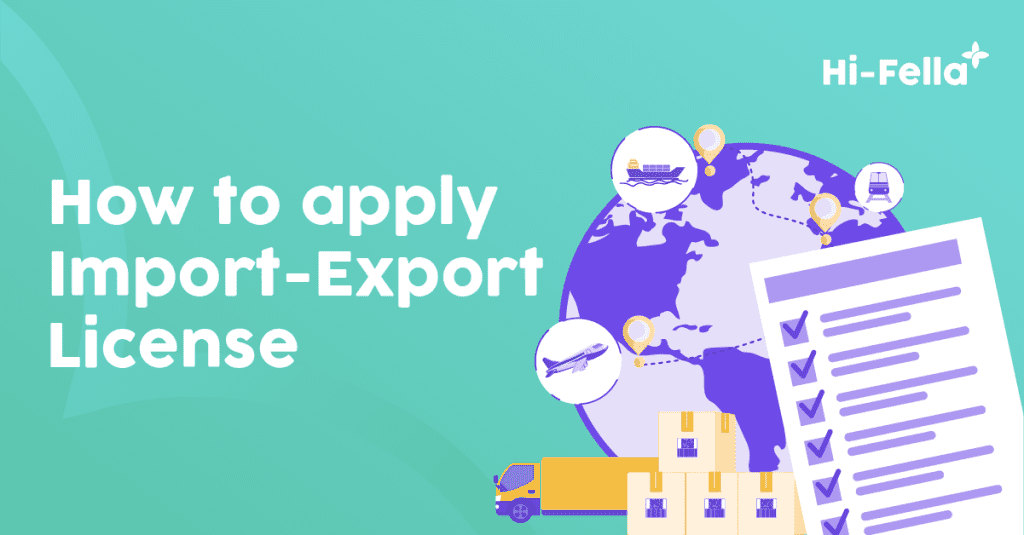Table of Contents
Navigating the complex world of international trade begins with a crucial step: obtaining an import-export license. Understanding the process of acquiring this essential document is key. In this comprehensive guide, we will walk you through the steps, requirements, and considerations involved in applying for an import-export license. By the end of this article, you’ll have the knowledge and confidence needed to embark on your international trade journey, all starting with the right paperwork in hand.
The importance of an import-export license
Import-export licenses are not without purpose. Import licenses are made with the purpose of protecting local businesses from unfair foreign competition, preventing unsafe or prohibited items from entering the country, controlling the outflow of money, helping importers with legal issues, and ensuring safe handling of dangerous items. Meanwhile export licenses are made with the purpose of tracking goods leaving the country, allowing businesses to expand to new markets, and ensuring safe handling of sensitive materials when exporting.
Different types of import-export licenses
There are different types of import-export licenses. These are the six examples of different types of import-export licenses.
- Open General Licensed Items
These are regular items like clothes, electronics, food, and drugs that can usually be traded between countries without any special permissions.
Imports with Specific Licenses
Some items like used machinery or firearms can only be imported if you have a special license for them. The license sets rules, like proving the machinery’s condition. - Import Quotas
In some countries like the USA, there are limits on how much of certain items, like textiles, can be imported from specific countries. Importers must follow these limits, which can change. - Export Licenses
When a country wants to control the export of important resources or materials (like steel or certain plants), they issue export licenses to regulate who can sell these items internationally. - Negative List
Countries have a list of items that are not allowed to be imported or exported. These can include things like animal products, wildlife, drugs, and other sensitive items. - Smuggling
When people bring items into a country without the right licenses, avoid customs checks, or trade banned items, it’s called smuggling. It’s illegal and can result in penalties.
Steps for applying for the license
How to apply import export license? It really depends on the country you live in. We take an example on how to apply import-export license in the US.
US Export License
- Determine if You Need a License
Check if your exported goods require a license based on their composition, intended use, and destination. Refer to the Consolidated Screening List (CSL) to identify parties or entities that may require a license. - Check for Other License Requirements
Besides the Export Administration Regulations (EAR), other agencies like ITAR, OFAC, NRC, and FDA may have license requirements for specific goods. Visit the respective agency’s website to obtain the necessary license. - Submit Your Export License Application
Ensure your company is registered with the Bureau of Industry and Security (BIS) and has a Company Identification Number (CIN). If yes, apply through the Simplified Network Application Processing (SNAP-R) portal. If not, register your company and get a CIN online, then proceed with the SNAP-R portal to apply for a license.
US Import License
- Determine if You Need an Import License
Categorize your goods using the correct HS code. Not all goods require a license; check the CBP guide for a detailed list. Common categories needing a license include agricultural products, firearms, commercial equipment, and more. - Identify the Licensing Agency
Find out which Partner Government Agency (PGA) manages the category of your imported goods. Popular agencies include FDA, USDA, ATF, and more. If unsure, contact a CBP import specialist for guidance. - Apply for the Import License
Visit the agency’s website and apply online. Follow specific regulations, such as quota limits, port of entry restrictions, and labeling requirements, if applicable.
List of required documents and eligibility criteria
It really depends on where you live, your destination country, and what you’re gonna export or import regarding how to apply for an import-export license. In the USA, there are several documents you need to prepare when applying for an import-export license.
- Employer Identification Number (EIN): Obtained from the IRS, it’s like a business social security number.
- Dun and Bradstreet Number (D-U-N-S): A 9-digit ID assigned to businesses, recognized by the government.
- Incorporation/Business Registration Documents: Proof that your business is legally registered in the USA.
- Product Information: Details about the products you plan to import/export, like codes and origin.
- End-Use Statement: Explains what you intend to do with the goods.
- Broker’s License: If you use a customs broker, they need a valid license.
- Power of Attorney: If you authorize someone else to act on your behalf.
- Shipping Documents: Including bills of lading, invoices, inspection certificates, CBP entry form, and certificates from relevant agencies.
How much does export license cost?
How much does export license cost? It really depends on where you live. In the USA, most import/export licenses do not require fees. For imports, you typically fill out forms and follow guidelines. For exports, the Bureau of Industry and Security (BIS) usually doesn’t charge for licenses. But if you deal with wildlife goods, the US Fish & Wildlife Service (FWS) may charge a $100 fee for new permits, renewals, and $50 for amendments.
Common challenges and how to overcome them during the application process
Of course when you’re applying for import-export licenses, you would face several challenges regarding that. These are the possible common challenges when you apply for import-export licenses.
- Complex Regulations
Challenge: Navigating the intricate regulations can be daunting.
Solution: Seek guidance from trade experts, attend workshops, or hire a customs broker to assist with the process. - Delays
Challenge: The application process may be time-consuming.
Solution: Start early, submit complete applications, and follow up with the relevant agency regularly. - Denied Applications
Challenge: Your application may be denied due to various reasons.
Solution: Seek clarification on the reasons for denial and address them before reapplying. - Changing Regulations
Challenge: Import-export regulations can change frequently.
Solution: Stay updated by subscribing to regulatory updates, attending seminars, and joining trade associations. - Compliance Issues
Challenge: Ensuring ongoing compliance can be challenging.
Solution: Implement robust internal compliance programs and conduct regular audits to identify and rectify any issues.
Ready to kickstart your export-import ventures? Hi-Fella is your trusted partner for seamless global trade. An online platform that brings suppliers and buyers together. With only downloading the Hi-Fella app on Play Store or App Store and signing up for an account, Hi-Fella can help you to do an export-import activity. Join us today and elevate your international business game!








